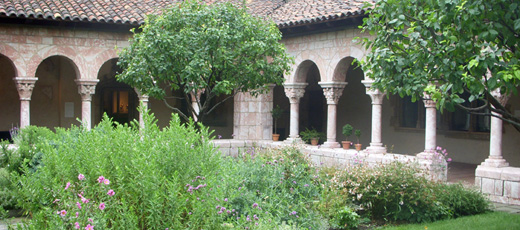Daily Office:
Friday, 15 October 2010
¶ You can almost hear the screenwriters cranking away in Marina del Rey: David Streitfelt’s front-page story about Nicolle Bradbury’s foreclosure and Thomas Cox’s successful attempt to halt it at the eleventh hour — thereby shutting down millions of such procedures across the country — must be sparking all the synapses nurtured by Erin Brockovitch. We’re sure that there is more to Mr Cox’s story.
¶ The trial of Getty Museum curator Marion True has been terminated on technical grounds by Italian judges. While this leaves Ms True in a limbo of allegations, the shock of her indictment has eliminated many dubious practices in the field of museum acquisitions. (LA Times; via Arts Journal)
¶ At the head of his list of bad long-term investments, Philip (of Weakonomics) places the 30-year US treasury bond. Philip is not yet 30 years old himself. Does the rising generation regard Old Faithful with new skepticism?
¶ A new study finds a correlation between the amount of walking an American is likely to do and the presence of a local rail network: convenient trains make for active pedestrians. (The Infrastructurist)
¶ Sal Cinquemani has some question about the “It Gets Better” campaign, in which (successful) adult gay men assure teens that their hassles will pass. All well and good, but hardly enough to make it better. (The House Next Door)
¶ Why China is so upset about Liu Xiaobo’s Nobel Peace Prize, even though there really are no (or not many) “dissidents” in China: in a land where history has a more cyclical look than it does almost anywhere else (with dynasties toppling every two hundred fifty years or so), elites try to forestall the seemingly inevitable. (LRB blog)
¶ M Rebekah Otto just bought a lot of books at a library book sale. Now she faces the familiar quandaries. (The Rumpus)
¶ Applying the principles of phylogenetics (evolutionary relatedness) to languages, and mapping social forms over the findings, yields controversial findings that Jared Diamond, author of Guns, Germs, and Steel hails “the best method to solve questions about the evolution of political complexity.” (Nature; via 3 Quarks Daily)
¶ Steerforth’s Greatest Hits. (The Age of Uncertainty)

